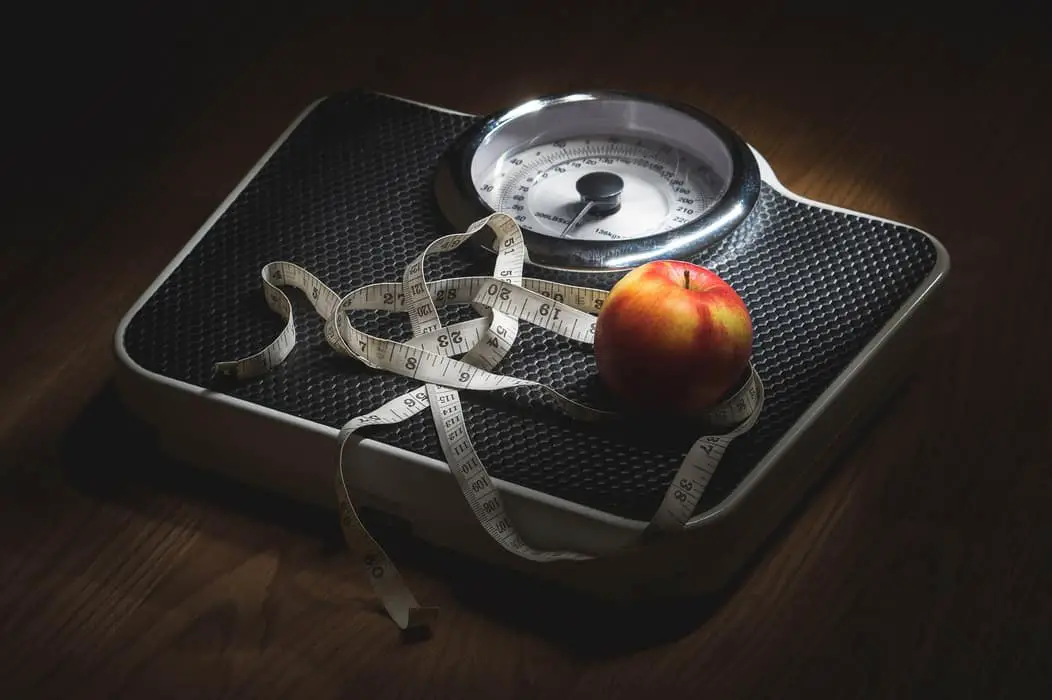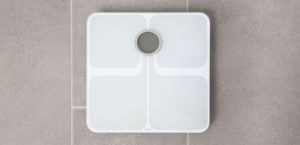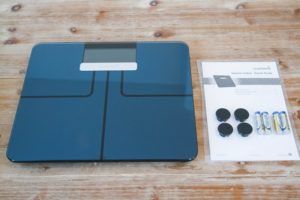It’s safe to say that we’ve all been there. You go in for your yearly physical or a much needed check up, the nurse or practitioner brings you in for a series fo measurements and updates on your health. You step onto the scale, and boom. Your weight is way off. And not just like a couple of pounds of water weight off, almost seemingly impossibly off.
This can be pretty discouraging, and even disorienting if you’ve been working hard at a diet for some time now, especially with a diet as restrictive and demanding as the keto diet can be.
So what’s causing this huge disparity between your scale at home, and the scale at the doctor’s office? I wanted to know this too, because I experienced it one too many times myself.
After a lot of research, I think I was able to find a few different answers, which I’ll break down in this article next.
Are Doctor’s Scale’s Accurate?
From the research I’ve done, professional opinions are a little bit split as to whether doctor’s scales are more or less accurate than the kind we would use in our own homes.
For starters, most doctors offices use what is known as a Physical Beam Scale, which, for medical purposes, is thought of to be the gold standard in terms of accuracy.
Doctors want their scales to be accurate because tracking patient history is important, that’s why weight is one of those factors that they aren’t just willing to take your word for.
These physical beam scales work differently from digital ones or even analog ones that you’d have in your own home. If you’ve ever been on one, you know what I’m talking about.
The nurse or doctor would have you step on, and they’s slowly adjust the balancing beam until it was completely level. Once the beam is level, it would have an indicator pointing out exactly what they weight of the object or person resting on the scale was. The physics behind this balancing method are what make it so accurate in the medical world.
But does all of that science mean that it’s more accurate than your scale that you use at home? Not necessarily.
It’s tough to pin down, because there really are a whole lot of factors at play.
For starters, if you’ve been weighing yourself accurately at home, it’s likely that you’ve been weighing yourself at around the same time of day each time, for consistency’s sake.
Additionally, it’s likely that when in the privacy of your own home, you’re weighing yourself without any clothes on that could be contributing to your weight.
When you’re in a doctor’s office, you’re getting your weight measured likely at a different time of day than you’d be used to, and are likely still fully wearing clothes. These two factors alone can call doctor’s physical beam scales’ accuracy into question.
To get into this a little bit further though, we’ll have to analyze the average home scale as well.
Is My Home Scale Accurate?
So if the doctor’s office scale may have some potential issues in accuracy, what about my home scale?
Unfortuantely, with so many different types of scales on the market today, it’s challenging to paint assumptions with a broad brush, but there is one way you can test this for yourself.
A lot of modern scales will have calibration functions, allowing you to reset it in case anything has gone wrong with its programming. If you don’t have a modern scale, maybe consider putting something that you already know the weight of onto it in order to test it’s accuracy in that right.
Some ways to ensure that your home scale maintains its accuracy is to always step onto it on a level surface, and if electronic, always be sure that it doesn’t contain any dying batteries, for lapses in power can definitely contribute to inaccurate readings.
If you’ve recalibrated your scale, or tested it with other objects that have verifiable weights, you really don’t have all that much to worry about when it comes to your home scale’s accuracy.
Even if you find that your doctors visits are resulting in weight counts that are much different from what you’re seeing at home, all you have to do is consistently use the home scale, at the same time of day, with the same amount (or lack) of clothing on, in order to scientifically have a controlled environment for weighing.
It’s important to use your home scale on a weekly basis, rather than a daily basis, because our bodies really do fluctuate a lot from day today. Even if you’re not on a diet trying to lose weight, or are trying to gain weight, the fluctuations our bodies go through, often due to water weight but also for other reasons, can be extremely wide in range.
If you’re checking too frequently, these fluctuations could be pointing you in the wrong direction from the very start.
Other Reasons for Weight Variations
- Water retention
It’s easy to experience water retention, especially when on a diet like keto. Water retention can sometimes not even be noticed, but it can also manifest itself in the form of swollen hands and feet, bloating, and severe dehydration.
- Build up of muscle
One thing that a lot of people forget is that muscle actually weighs more than fat. So if you’re hitting the gym fairly frequently, it may be that you’re putting on muscle mass unintentionally. This is good news, because the weight gained from muscle mass is perfectly healthy, and has none of the drawbacks that weight from body fat has.
- Change in your eating schedule
Changes in your eating schedule can slowly but surely change how your body metabolizes food. If you’ve recently gotten into an intermittent fasting protocol that could be effecting some serious fluctuations in your body weight. You may just want to give it some time for your body to get used to the new schedule, and it should go back to a more consistent pace of weight maintenance.
- Your sleep schedule is off
This one is probably the biggest reason that people experience fluctuations in weight. Insomnia can lead to overeating, increased appetite, and a slower metabolism in general. If you’re worried about big fluctuations in your weight, you might just not be sleeping enough.
That’s why I rely on melatonin as a natural way to help me stay asleep throughout the night, and improve the quality of my REM sleep too.
When Do I Way The Least During The Day?
This one is of course also up for debate, but in short, I think morning is definitely the best time of day to weigh yourself, because that’s when you weight he least.
Doctors agree too. Holly Wyatt, M.D., associate director of the University of Colorado Anschutz Health and Wellness Center recently told Consumer Reports that it’s best to make weighing yourself a part of a “morning ritual” in order to stay consistent.
As I mentioned above, I don’t think it’s useful to weigh yourself every morning if you’re trying to lose weight, but if you’re just trying to maintain your current body weight, it can be an effective way to get a baseline for your general weight, and provide you with some insight into what causes spikes and dips in your average body weight from week to week.
The largest reason that you weigh the lightest in the morning is because you don’t have the additional weight of any undigested food in your system (if you didn’t stay up late eating that is).
Additionally, during your sleep your body has the chance to rest and get rid of excess fluids (which is why you usually have to pee first thing in the morning). This mean’s that on top of not having weight from undigested foods, you’re also at your lightest in terms of available water weight.
Best Accurate Home Scales
Regardless of what the doctor’s scale says, it’s important that you have an accurate scale at home, because that’s the scale that you’ll be using the most often when monitoring your weight loss goals.
With so many different kinds of scales out there, I thought I’d go ahead and review two of my personal favorites in terms of ease of use, accuracy, and durability.
-
Fitbit Aria 2 Wifi Smart Scale
Fitbit’s Aria 2 is essentially the Cadillac of all weight scales.
It has the ability to measure not only your weight, but percentage of body fat, lean mass, and your general BMI (body mass index). This can be great for tracking more specific weight loss goals rather than just taking a look at a single number on a scale.
Additionally, this scale is designed to sync with your Fitbit dashboard using a special type of Wi-Fi encryption so that it can track your progress, and provide you with easy to read graphs and insights.
What I really like about this scale is that as a smart scale, it’s family friendly. It has the ability to provide all of these unique individual insights not only to you, but up to 7 other people as well.
>>Click Here to Purchase the Fitbit Aria 2 from Amazon<<
- Garmin Index Smart Scale
Another at the top of my list is the Garmin Index Smart Scale.
For a slightly cheaper price than the Aria, one advantage is that it can track up to sixteen unique individuals, and has a stellar nine month long battery life.
Additionally, it comes wiht some impressive in-depth metrics for measurement. The Garmin Index can measure metrics like weight, water percentage, skeletal muscle mass, bone mass, BMI, and body fat all in one.
What I like most about this one is that it syncs with your smart phone easily, and you don’t need an additional piece of wearable tech like the fit bit to get it’s full range of benefits.
It’s quick and easy to set up with your smart phone, and has a really cool night readable display, so you don’t even need to turn the lights on if you want to use it in the early hours of the morning.
>>Click Here to Purchase the Garmin Index Smart Scale from Amazon<<



